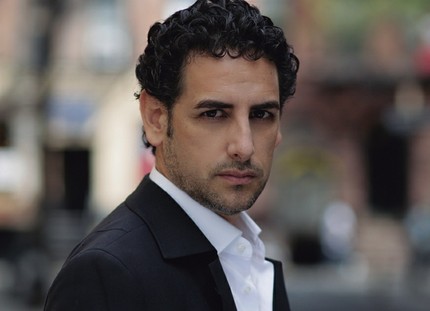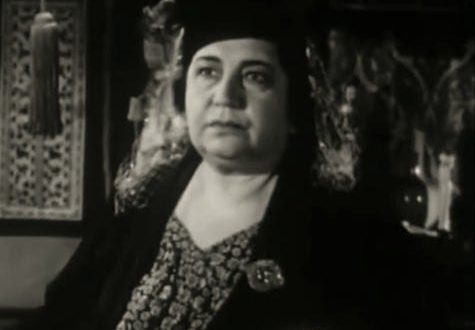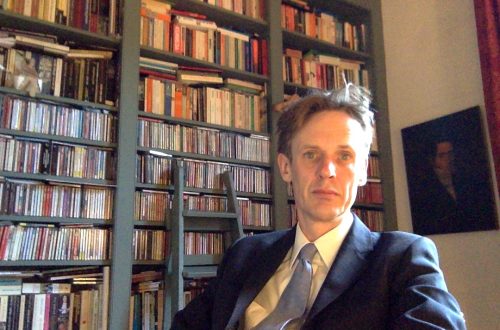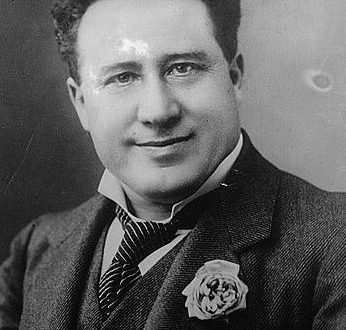
Juan Diego Flores |
Juan Diego Flórez

He is not a candidate for the title of “Fourth Tenor” and does not claim the soon-to-be-vacated challenge crowns of Pavarotti and Placido Domingo. He is not going to conquer the masses of Nessun dorm-oh – by the way, he does not sing Puccini at all and only one Verdiian role – Fenton’s young lover in Falstaff. However, Juan Diego Flores is already on his way to the stars, thanks to a rare type of voice called by the Italians “tenore di grazia” (graceful tenor). The most prominent opera houses of the world already today give him the palm as a performer of the Belcante works of Rossini, Bellini and Donizetti.
Covent Garden remembers his triumphant performance in Rossini’s “Othello” and “Cinderella” last year, and soon he returns there as Elvino, the fiance of the famous lunatic in Bellini’s “Sleepwalker”. This season, the 28-year-old singer, clearly aware of his abilities, has already sung this part in a production of the Vienna Opera (in London it will be seen in March 2002), and insisted that the role written by Bellini for his outstanding contemporary Giovanni Rubini, was executed without planned cuts. And he did the right thing, because of the entire composition he was actually the only singer of international class, not counting N. Dessey, who fell ill and was replaced. In London, his Amina will be a young Greek Elena Kelessidi (born in Kazakhstan, performing in Europe since 1992 – ed.), who has already managed to win the hearts of listeners with her performance in La Traviata. Finally, there is hope that the production of the Royal Opera will be more successful in all respects, even despite the rather hopeless scenography of Marco Arturo Marelli, who placed the action of Bellini’s opera in the setting of an Alpine sanatorium from Thomas Mann’s “Magic Mountain”! A stronger line-up of performers in CG, including Cardiff Singer of the World, Inger Dam-Jensen, Alastair Miles and conductor M. Benini, sets the mood for this – at least on paper everything looks more promising compared to mediocrities in Vienna.
Be that as it may, Flores is almost perfect in the role of Elvino, and those who saw him Rodrigo in Othello or Don Ramiro in Cinderella know that he is also slim and elegant in appearance, like his voice is classical in its rode is Italian, with a brilliant attack, a range stretching into the stratosphere, which the Three Tenors never dreamed of, flexible, mobile in roulades and decorations, fully satisfying the requirements that composers of the bel canto era set for their tenors.
No wonder, then, that Decca “grabbed” him first, signing a contract for a solo disc. The singer’s first Rossini disc includes the final aria of Count Almaviva from The Barber of Seville, which is almost always interrupted, while Flores, on the contrary, sings it whenever the opportunity arises. “Rossini originally called the opera Almaviva and wrote it for the great tenore leggiero Manuel Garcia, which is why it cannot be shortened. The Barber is an opera by a tenor, not a baritone” – few Figaro would agree with this statement, but history is on the side of Flores and he has enough vocal splendor to confirm this particular version.
Decca is clearly betting on Flores as C. Bartoli’s partner. In Rossini their voices would merge perfectly. There are rumors about the recording of The Thieving Magpie, a virtually unknown masterpiece that opens with one of the composer’s most popular overtures. Bartoli and Flores could bring this opera back into the repertoire.
Despite his youth, Flores is well aware of his prospects and opportunities. “I sang Rinucci in the Vienna production of Puccini’s Gianni Schicchi and will never do it again in the theater. It’s a small part, but I felt how heavy it was for my voice.” He is right. Puccini wrote this role for the same tenor who sang the dramatic role of Luigi in the first performance of The Cloak, at the world premiere of The Triptych at the New York Metropolitan. Rinucci’s records often feature tenors with voices like Flores, but in the theater a young Domingo is required. Such a “competent” self-assessment of the singer is surprising, perhaps also because Flores, although he grew up in a musical family from Lima, never intended to become an opera singer.
“My father is a professional performer of Peruvian folk music. At home, I always heard him sing and play the guitar. I myself, starting from the age of 14, also liked to play the guitar, however, my own compositions. I wrote songs, I loved rock and roll, I had my own rock band, and there was not so much classical music in my life.
It so happened that the head of the high school choir began to entrust solo parts to Flores and even to study individually. “He made me turn to the path of opera, and under his guidance I learned the Duke’s aria Questa o quella from Rigoletto and Schubert’s Ave Maria. It was with these two numbers that I performed at the audition for the conservatory in Lima.
At the conservatory, the singer says, for a long time he could not determine what was really suitable for his voice, and rushed between popular music and classics. “I wanted to study music in general, especially composition and piano playing. I began to learn how to play Chopin’s easy nocturnes and accompany myself.” In Flores’s Viennese apartment, which Domingo rents to him, the notes of Debussy’s “Le Petit Negre” are revealed on the piano, which demonstrates musical interests that go beyond the tenor repertoire.
“For the first time I began to understand something while working with the Peruvian tenor Ernesto Palacio. He told me: “You have a special type of voice and it must be handled with care.” I met him in 1994 and when he heard me, he already had some ideas, but nothing special, he offered to record a small role on CD. Then I went with him to study in Italy and slowly began to improve.”
Flores made his first serious “spurt” in 1996, at the age of only 23 years. “I went to the Rossini Festival in Pesaro urgently to prepare a small role in Mathilde di Chabran, and it all ended with the performance of the main tenor part. The directors of many theaters were present at the festival, and I immediately became very famous. After my first professional performance at the opera, my calendar was filled to capacity. At La Scala I was invited to an audition in August, and already in December I sang in Milan in Armida, in Wexford in Meyerbeer’s North Star, and other large theaters were also waiting.
A year later, Covent Garden was lucky enough to “get” Flores to replace D. Sabbatini in a concert performance of the revived opera “Elizabeth” by Donizetti and quickly conclude a contract with him for “Othello”, “Cinderella” and “Sleepwalker”. London can safely expect the return of the very successful Cinderella and, apparently, it’s time to think about the new Barber of Seville – oh, sorry – Almaviva – for the best young Rossini tenor of our day.
Hugh Canning The Sunday Times, November 11, 2001 Publication and translation from English by Marina Demina, operanews.ru





